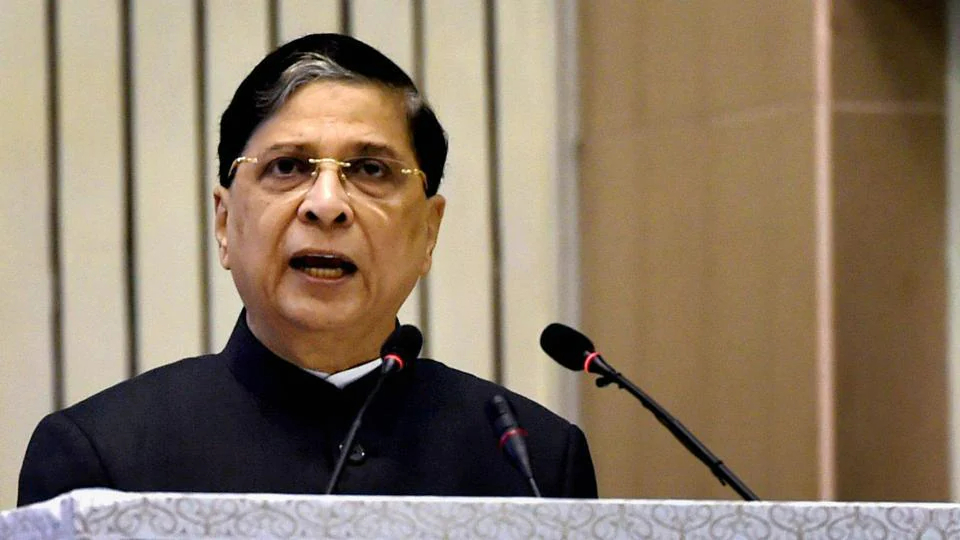Adarsh Kumar
Justice Dipak Misra is one of the most talked-about judges in recent times, due to his presence on the bench while hearing some of the most burning issues in the 2011-20 decade. Apart from this, he couldn’t keep himself away from the controversies, during his tenure as HC judge and his tenure as CJI. Even the impeachment motion had been progressed if Vice President had not rejected the impeachment notice. He started his professional journey as an advocate and went to become 45th Chief Justice of India, where he served for one year as CJI and almost 6 years as one of the Justice at the Apex Court.
Background and Professional Life
Justice Misra was born on 3rd October 1953. He is the nephew of the 21st CJI Justice Ranganath Misra. He got his law degree from Madhusudan Law College, Cuttack. He practised at the Orissa High Court after getting enrolled at the bar in 1977. In 1996, he was appointed as an Additional Judge of the Orissa High Court, and in 1997 he was made a permanent judge in the same High Court. He served as Justice in HC for almost 12 years and in 2009, He was appointed as the Chief Justice of Patna High Court. He served at Patna High Court till 2010, then he was appointed the Chief Justice of Delhi High Court, where he served for one and half years. Then, he was promoted as the Supreme Court Judge on 10th October 2011. He served as the Justice for almost 6 years and then on 28th August 2017, he was appointed as the 45th Chief Justice of India after Justice Jagdish Sigh Khehar (44th). He served for thirteen months as the CJI before he retired on 2nd October 2018, succeeded by Justice Ranjan Gogoi.
Landmark Judgements
After the ultimate decision to hang Yakub Memon, the appeal was presented for the last time to the Apex Court a few hours before the execution. Justice Misra led the bench at 03:20 AM on 30th July 2015 and rejected the last petition to stay the execution. The bench said, “if we have to stay the death warrant it would be a travesty of justice. We do not find any merit in the writ petition.”
2. National Anthem in Theatres
In Shyam Narayan Chouksey Vs. Union of India, The bench consisting of Justice Misra made the national anthem in cinema halls mandatory in 2016, but later this decision was amended many a time and made it optional to play in cinema halls.
3. Gay Relationships
In Navtej and Ors. V. Union of India and Ors., The Apex court declared a part of section 377 as unconstitutional citing it as irrational, indefensible, and manifestly arbitrary. He emphasized the universal concept of individuality, liberty, and dignity of the individual. That portion was held to deny the right of an individual to choose a partner fearlessly.
4. Adultery Decriminalized
In the case of Joseph Shine v. Union of India, section 497 was held unconstitutional by the Supreme Court viz. Adultery. As earlier, it was a criminal offence committed by a man to another man, if the former establishes an adulterous relationship with the wife of the latter. The court held that herein, the right to consent of the wife was vested in the husband, so it was held to violate the fundamental right of equality.
5. Right to privacy regarding Aadhar
In K.S. Puttaswamy v. Union of India, The petition was on the unconstitutionality of Aadhar over the collection of biometric data of the citizens. The court held Aadhar to be constitutional per se, but also ruled that the UIDAI project can’t be made mandatory for the public. The right to privacy was declared as the fundamental right under the ambit of the right to life.
Other than these many judgments were passed in which Justice Misra was on the bench. Few of them can be the Sabarimala issue, where women were allowed to worship in the temple. Live streaming of the Court proceeding of the Supreme Court, made online availability of FIR within 24 hours mandatory, to make police more accountable.
Controversies
Justice Dipak Misra apart from being involved in so many important judgments produced by the apex court, couldn’t help him to keep himself away from the controversies. A major one was on 12th January 2018, when in the history of our nation, four justices of the Supreme Court, J.Chelameswar, Ranjan Gogoi, Madan Lokur, and Kurian Joseph addressed a press conference, criticized Justice Misra’s style of allotting cases and administration. Many retired justices criticized this act of these four as such acts will diminish the stature of the Supreme Court and belief of the Public of Judiciary. Following this incident, on 20th April 2018, the opposition submitted a petition to impeach then CJI to the vice-president, but this petition was rejected 3 days later, on the basis that complaints were about internal administration and not misbehaviour.
Apart from this, he was linked to the Medical Council of Indian Scam. The issue involving Justice Karnan and his severe allegation against many justices of Madras HC and also after some time dragged the justices of the Apex Court into disturbing allegations.
Views are personal.

